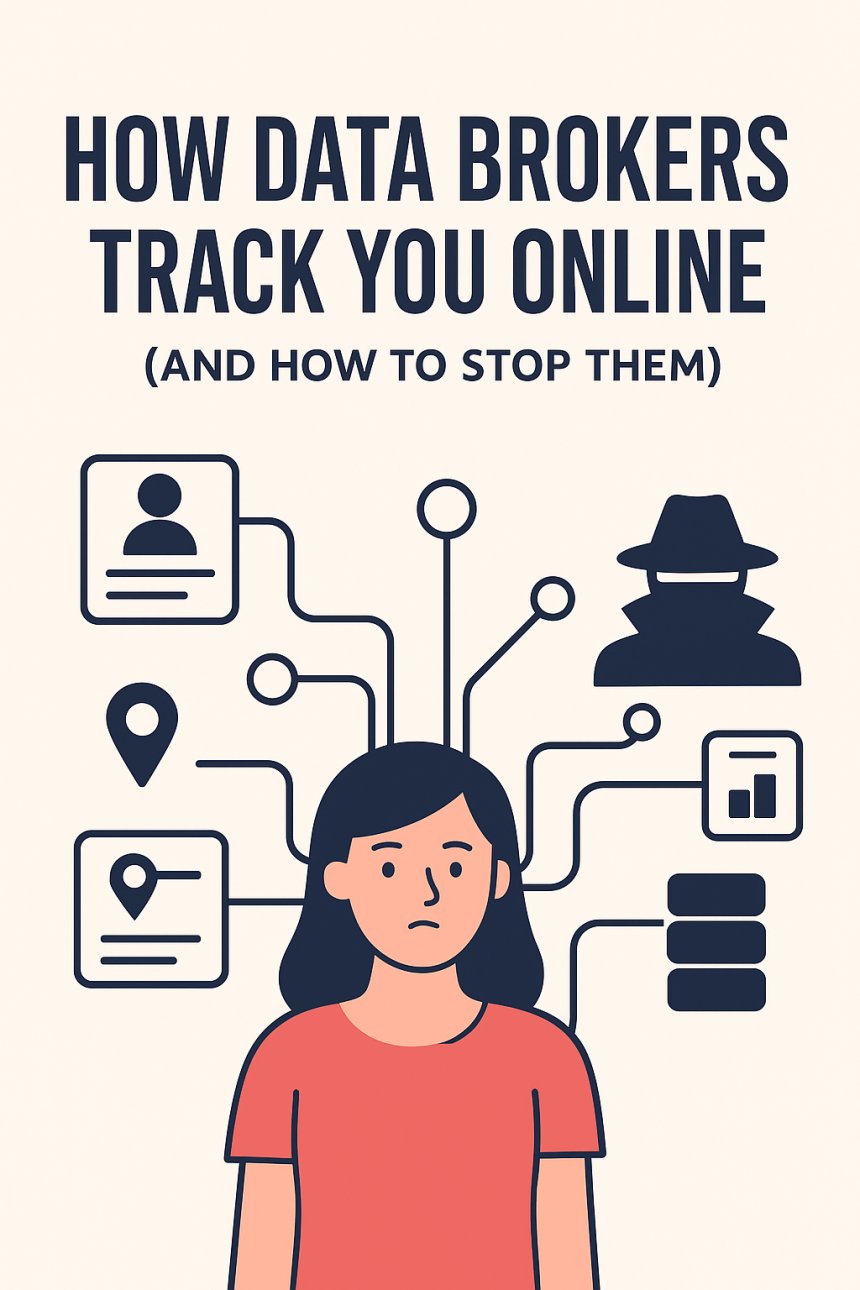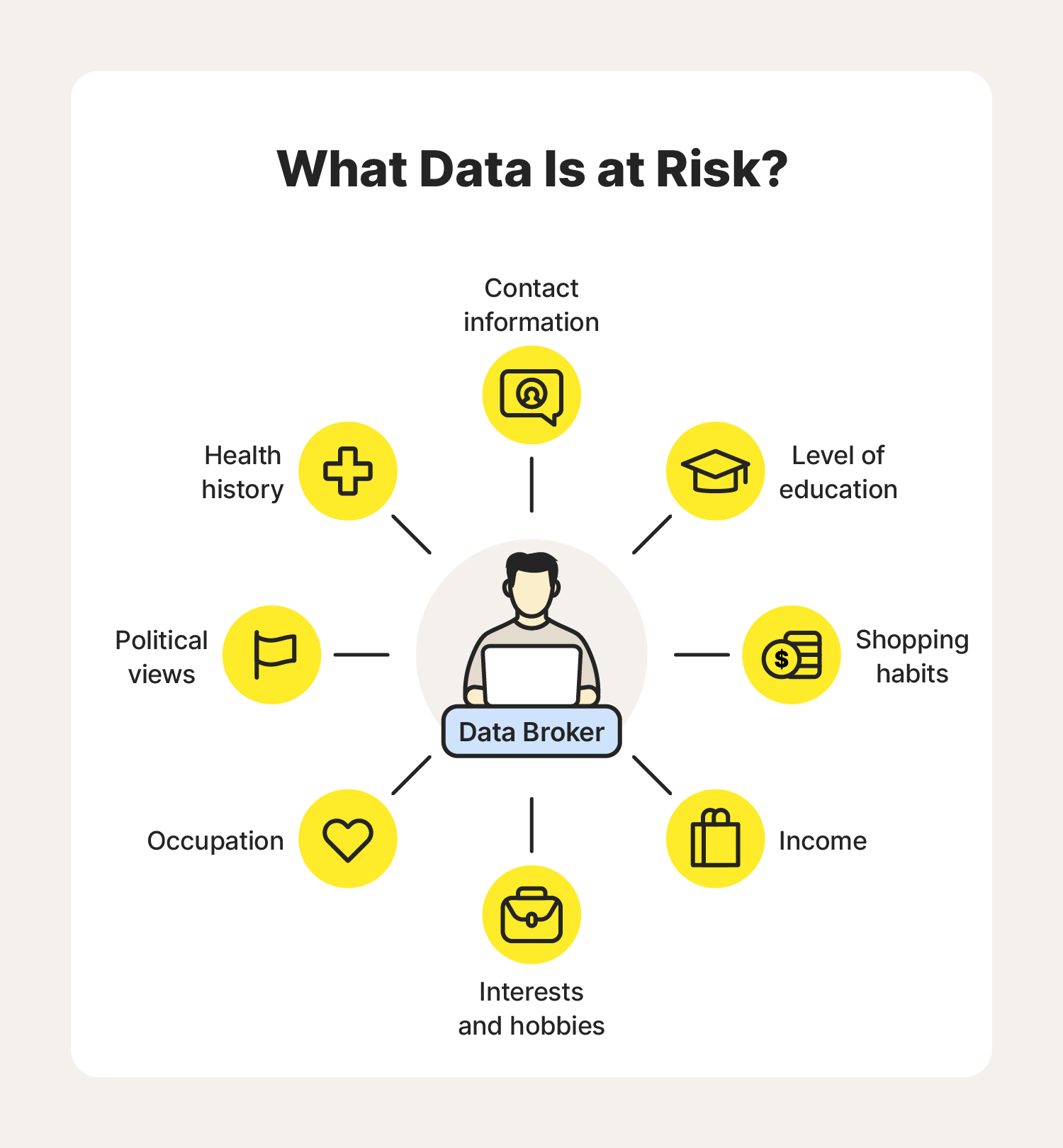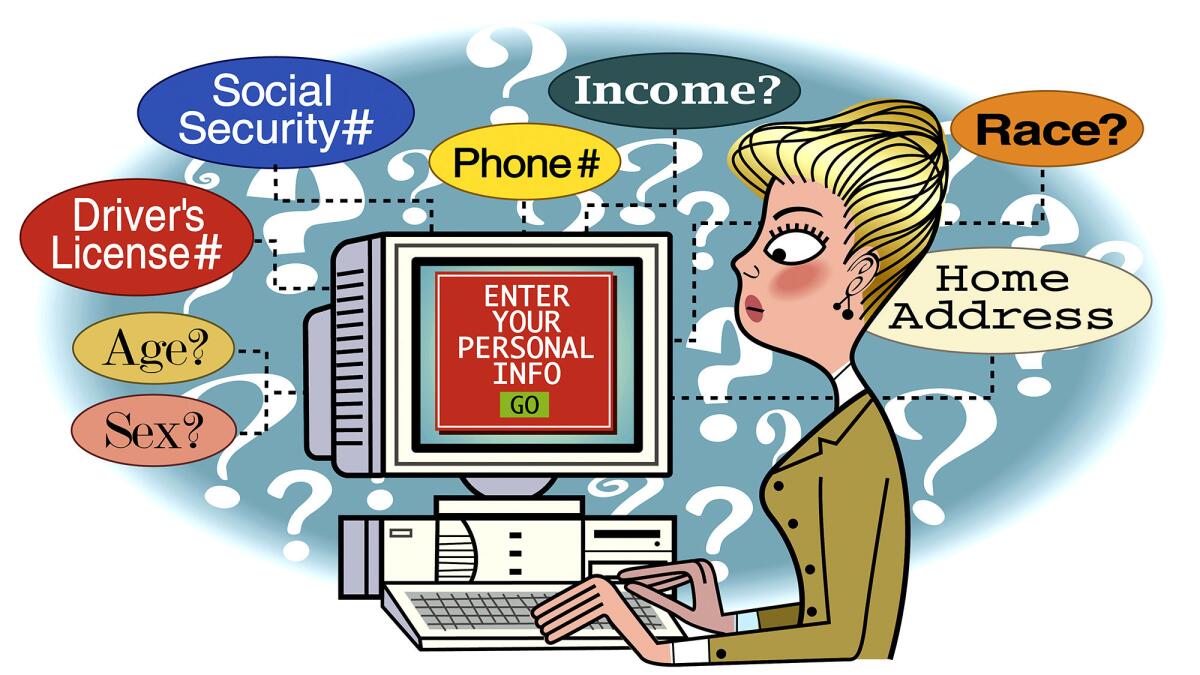
Most people worry about social media apps, search engines, and websites tracking them. But behind the scenes, there’s a much bigger, more powerful machine collecting your information: data brokers.
You don’t see them.
You don’t interact with them.
You never consent to them.
Yet they collect thousands of data points about your life — and sell them to advertisers, political groups, government agencies, and even private individuals.
This article exposes who data brokers are, how they track you, what they know about you, and how to protect your privacy from them.
Data brokers are companies that collect, analyze, and sell personal information.
They don’t generate content or offer apps — their business model is data.
Some of the biggest include:
Acxiom
Experian
Equifax
Oracle Data Cloud
Epsilon
LexisNexis
They gather data from several sources — legally, quietly, and constantly.
Data brokers don’t need your permission. They operate behind the scenes using:
Tracks your location and browsing habits.
Your likes, posts, comments, and networks.
Birth records, property ownership, court documents.
Games, weather apps, fitness trackers — anything with ads.
Online purchases, loyalty cards, discount apps.
Pixel tracking, fingerprinting, hidden scripts.
GPS logs from apps and Bluetooth beacons.
Put together, they form a massive profile about your life.
You’d be shocked how much they can collect:
Name
Age
Gender
Address
Phone numbers
Websites you visit
How long you stay
What you search
What posts you engage with
Hobbies
Food preferences
Relationship status
Medical interests
Political leanings
Religion
Travel habits
Purchase history
Estimated income
Home value
Credit behavior patterns
Some brokers create “hidden profiles” such as:
“Likely to be depressed”
“Parent of toddlers”
“Experiencing financial stress”
“Interested in weight loss”
These profiles influence ads, decisions, insurance rates, and even job opportunities.
Data brokers create risks that go far beyond simple advertising.
Once your data is collected, you cannot easily delete it.
Political campaigns and marketers use data to influence behavior.
Data leaks expose rich profiles containing personal and behavioral data.
Some brokers have been caught selling data to:
Stalkers
Private investigators
Unknown third parties
Even deleting apps does not remove already collected data.
You can’t stop data brokers from existing — but you can limit what they collect about you.
Here’s what you should do:
A VPN hides your IP address, making it harder to track:
Location
Browsing activity
Device fingerprint
This cuts off a major source of data broker tracking.
Turn off ad personalization on:
TikTok
iPhone settings
Android ad settings
This reduces how much data is shared between networks.
Switch to:
Brave
Firefox
DuckDuckGo Browser
Tor Browser
These block trackers automatically.
Tools like:
uBlock Origin
Privacy Badger
NoScript
Ghostery
Block hidden trackers, cookies, and fingerprinting scripts.
Use a service like:
JustDeleteMe
AccountKiller
Or manually delete unused accounts to reduce data leaks.
Do not install apps that:
Request location for no reason
Ask for unnecessary permissions
Are loaded with ads
Come from unknown developers
Some major brokers allow you to request data removal:
Acxiom opt-out
Epsilon opt-out
Oracle opt-out
Experian marketing opt-out
LexisNexis privacy request
The process is slow, but effective.
Use separate identities for:
Shopping
Social media
Work
Personal communication
This prevents linking all your data together.
Data brokers thrive in the shadows because most people don’t understand how their information is collected or sold.
But awareness is power.
By using privacy tools, limiting data sharing, strengthening browser protections, and opting out where possible, you can dramatically reduce the digital trail these companies depend on.
Privacy isn’t lost — but you must claim it intentionally.
 Like
0
Like
0
 Dislike
0
Dislike
0
 Love
0
Love
0
 Funny
0
Funny
0
 Angry
0
Angry
0
 Sad
0
Sad
0
 Wow
0
Wow
0